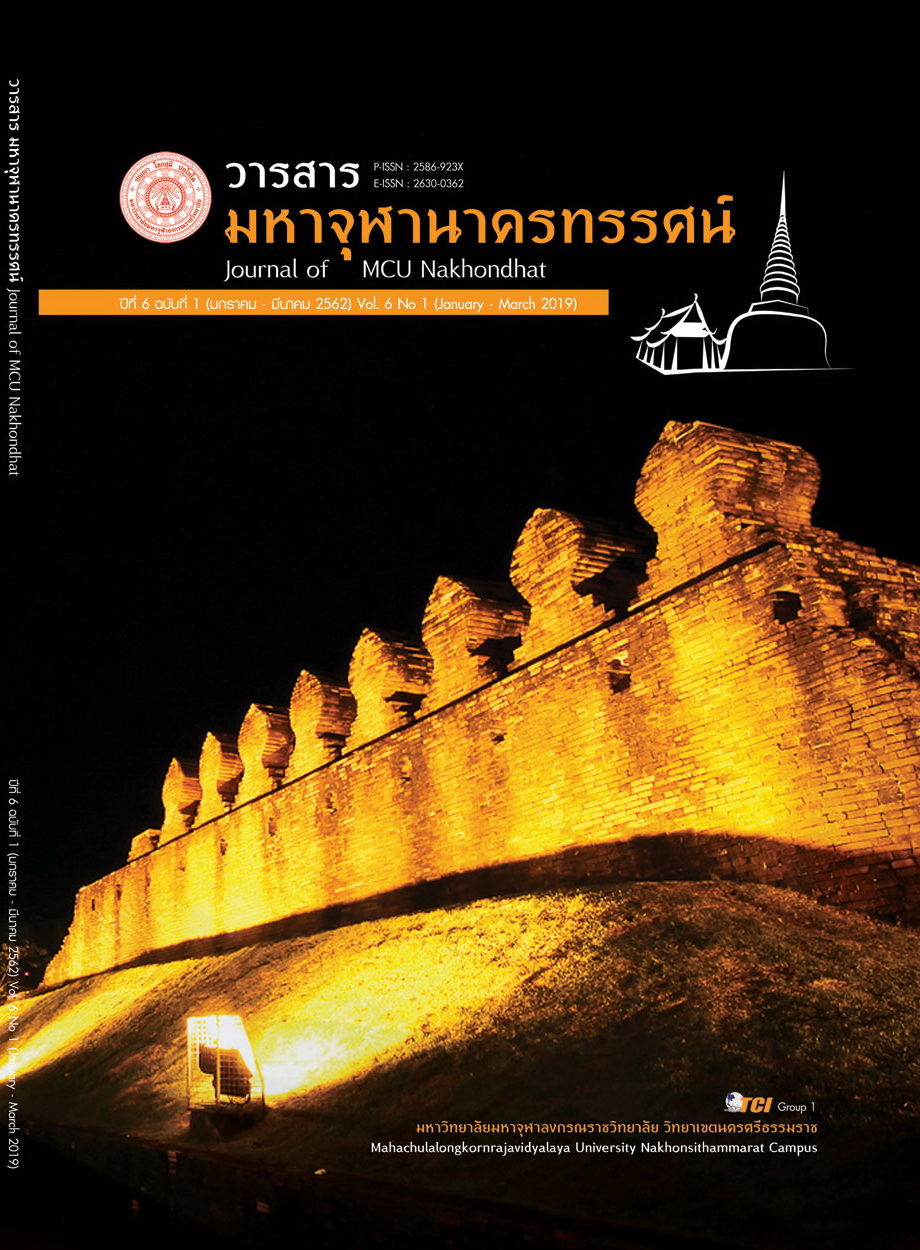AN ANALYTICAL STUDY OF THE PLANES EXISTENCE OF BEINGS IN BUDDHIST PHILOSOPHICAL PERSPECTIVE.
Main Article Content
Abstract
This research aimed: 1) to study the outstanding and existence of woefulness appeared in Tipitaka. 2) To study the outstanding and existence of blissfulness appeared in Tipitaka. 3) To analyze the Planes Existence of Beings in Buddhist Philosophical perspective. This is a qualitative research with in-depth study of the data on the Planes Existence of Beings in Buddhist Philosophical perspective with critically interpretation through the primary and secondary sources including the Buddhist sages.
The research was found that the Planes Existence of Beings in the Theravada Buddhist philosophy is divided into two kinds; mundane states and Supramundane states. The mundane states are the Planes of beings fallen under the realm of defilements and cravings that caused to the round of birth and death, which they are differentiated from the supramundane ones, that is to say, the supramundane ones are the state of beyond defilements to liberate from the sufferings. The mundane ones are divided into two levels; the existence of woeful and blissful states. The woeful states of existence are the Planes of evil action resulting of bodily and mental suffering consisting of four planes of existence, namely; the realm of the brute creation, the plane of Asura demons, and the realm of ghost-being and hell state. The blissful states of existence are the Planes of good action resulting of bodily and mental happiness consisting of three planes of existence, namely; the human realm, the celestial realm and the Fine-material and Immaterial realm. The differentiation between woeful and blissful existence is based upon the human action, that is to say; if any doing is the unwholesome course of action like killing life, the action is affected to relink with the woeful existence. On the other hand, if any doing is the wholesome course of action like abstaining from taking life, the action is affected to relink with the blissful existence. With reasoning of Theravada Buddhist philosophy, it is taught that all beings have already been determined by the Law of Kamma.
Article Details
References
พระยาธรรมปรีชา (แก้ว). (2520). ไตรภูมิโลกวินิจฉยกถา. พระนคร: กรมศิลปากร.
พุทธทาสภิกขุ. (2539). กรรมและการอยู่เหนือกรรม. กรุงเทพฯ: ธรรมสภา.
มหาจุฬาลงกรณราชวิทยาลัย. (2539). พระไตรปิฎกฉบับภาษาไทย ฉบับมหาจุฬาลงกรณราชวิทยาลัย เล่มที่ 20,35. กรุงเทพฯ: โรงพิมพ์มหาวิทยาลัยมหาจุฬาลงกรณราชวิทยาลัย.
มหามกุฏราชวิทยาลัย . (2525). สุตฺตนฺตปิฏเก สํยุตฺตนิกายสฺส สคาถวคฺโค เล่ม 15 . กรุงเทพฯ: มหามกุฏราชวิทยาลัย.
มหามกุฏราชวิทยาลัย . (2525). สุตฺตนฺตปิฏเก มชฺฌิมนิกายสฺส มชฺฌิมปณฺณาสกํ เล่ม 13 . กรุงเทพฯ: มหามกุฏราชวิทยาลัย.
มหามกุฏราชวิทยาลัย. (2525). สุตฺตนฺตปิฏเก ขุทฺทกนิกายสฺส ธมฺมปทคาถา เล่ม 24 . กรุงเทพฯ: มหามกุฏราชวิทยาลัย.
มหามกุฏราชวิทยาลัย. (2525). สุตฺตนฺตปิฏเก มชฺฌิมนิกายสฺส อุปริปณฺณาสกํ เล่ม 14 . กรุงเทพฯ: มหามกุฏราชวิทยาลัย.
วศิน อินทสระ. (2544). หลักกรรมและการเวียนว่ายตายเกิด พิมพ์ครั้งที่12. กรุงเทพฯ: เคล็ดไทย.


